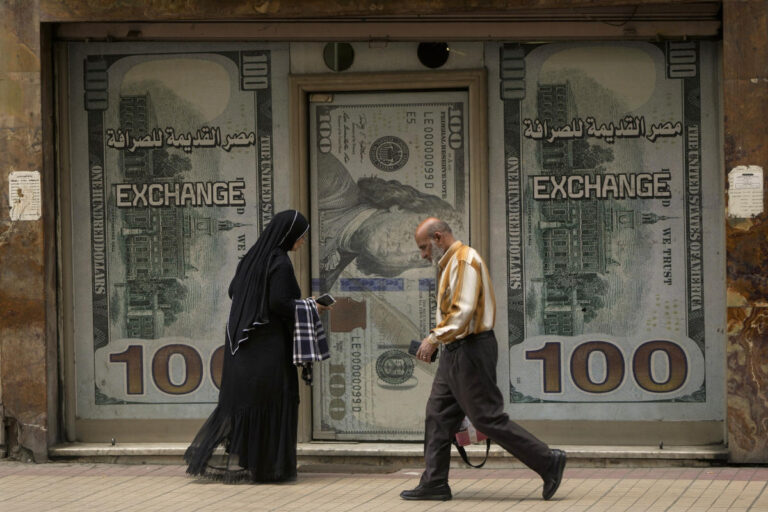CAIRO (AP) – The International Monetary Fund's board will increase bailout loans to Egypt from $3 billion to $8 billion in a measure aimed at supporting Arab economies hit by staggering shortfalls. confirmed the agreement. Soaring foreign currency prices and rising inflation.
The council said in a statement late Friday that the decision will enable Egypt to immediately receive about $820 million as part of the agreement announced earlier this month.
The agreement came after Egypt agreed to a reform plan with the IMF that focuses on floating the local currency, reducing public investment and making the private sector the engine of growth, the statement said.
Egypt has already floated the pound and sharply raised its main interest rate. Commercial banks are currently trading US currency at around 31 pounds to more than 47 pounds. The measures are aimed at combating rising inflation and attracting foreign investment.
Egypt's economy has been hit hard by years of government austerity, the coronavirus pandemic, the fallout from Russia's full-scale invasion of Ukraine, and most recently the Israeli-Hamas war in the Gaza Strip. Houthi attacks on Red Sea shipping lanes have reduced revenues from the Suez Canal, a major source of foreign exchange. The attack diverted traffic away from the canal and around the tip of Africa.
“Egypt faces significant macroeconomic challenges, and its management has become more complex given the recent spillover from conflicts in Gaza and Israel. Red Sea turmoil has reduced foreign exchange inflows and fiscal revenue. Revenue from the Suez Canal, an important source, has also declined,” said IMF Managing Director Kristalina Georgieva.
The IMF said these external shocks and delays in reform are having a negative impact on economic activity. According to the IMF, weak confidence and foreign exchange shortages will cause growth to slow to 3.8% in 2022-23, slow further to 3% in 2023-24, and recover to around 4.5% in 2024-25. It is expected that this will happen, it said in a statement.
Annual inflation was 36% in February, the IMF said, but is expected to ease over the medium term.
Currency devaluation and rising interest rates are adding to the pain for Egyptians already suffering from soaring prices over the past few years. According to official statistics, nearly 30% of Egyptians live in poverty.
Finance Minister Mohamed Maait said the approval by the IMF board “reflects the importance of the corrective measures” taken by the government.
Egypt also signed a deal with the European Union this month that includes a 7.4 billion euro ($8 billion) aid package for the most populous Arab country over three years.
The EU will use an emergency funding procedure that bypasses parliamentary oversight and other safeguards to quickly inject much-needed funds into Egypt's staggering economy, according to European Commission President Ursula Fong. Der Leyen intends to quickly raise a €1 billion ($1.1 billion) package.


